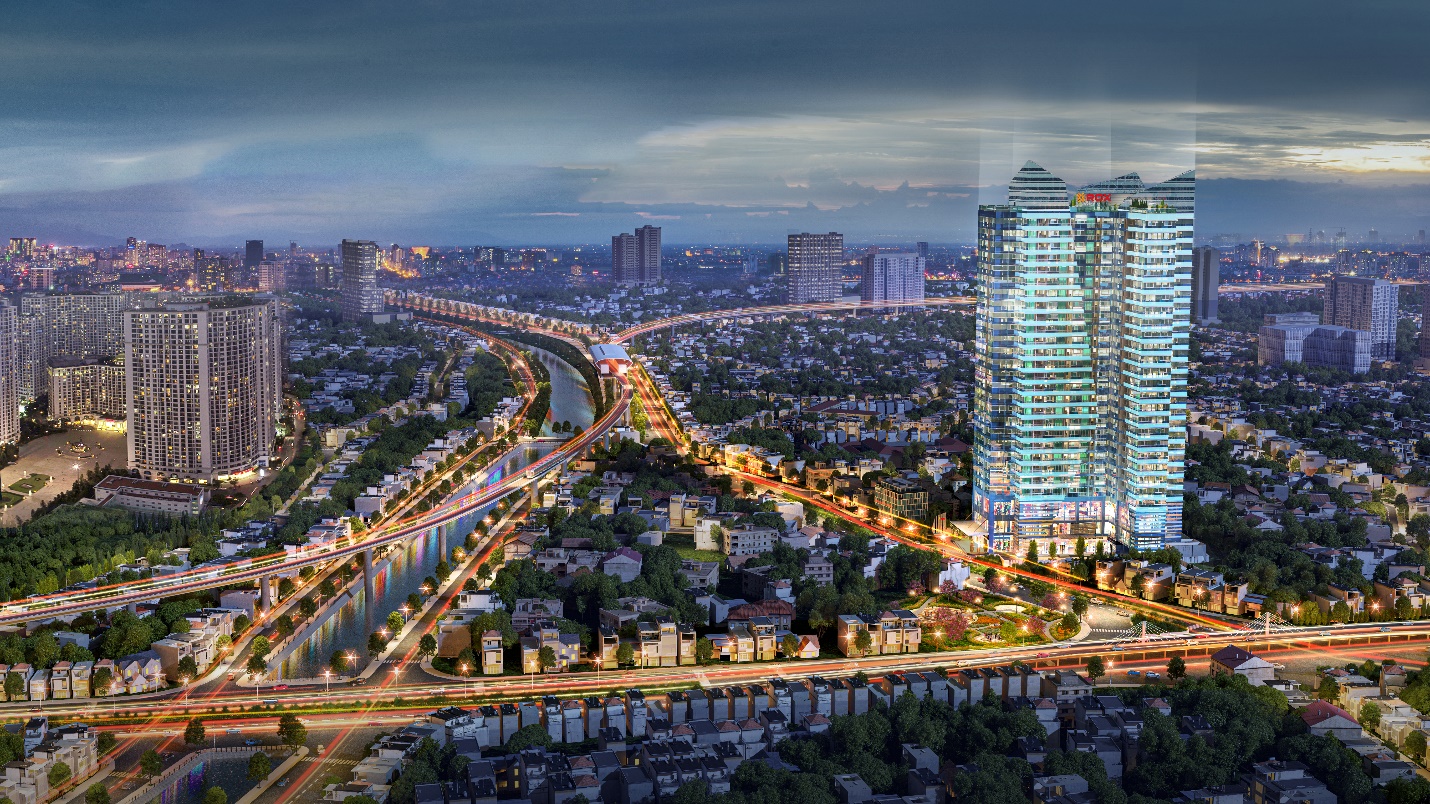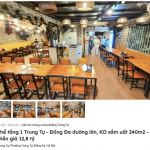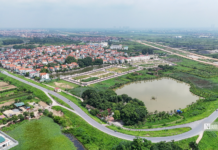Attractive Liquidity from Inner-City Apartments
The real estate market has been likened to a psychological “trap” that has caused many to miss out on homeownership opportunities. Property prices in inner cities, including Hanoi, have been on a constant rise, setting new benchmarks.
This can be attributed to the allure of central districts, which always attract investors due to the high demand for housing. These areas are popular among both locals and expatriates, offering a vibrant mix of residential, commercial, and tourism activities. Beyond their prime locations, inner-city areas also boast the best infrastructure, transportation, services, and a dynamic lifestyle—all contributing to their unique appeal.
Thus, real estate in central areas offers a dual value proposition for investors. It is a channel to store and grow their asset value while ensuring profitable rental opportunities and long-term capital appreciation. Additionally, the liquidity of inner-city properties remains highly attractive.
According to Savills, the supply of inner-city apartments will remain scarce in the next 3–5 years due to limited land resources and legal complications. The few projects that can be launched during this period present a valuable opportunity for investors. After a period of rental exploitation, investors can choose to sell, benefiting from both rental income and capital gains.

The Ngã Tư Sở area remains relatively unaffected due to its modern infrastructure.
The Rise of Hotel Apartments
The market is witnessing the emergence of modern product lines, such as apartments with amenities comparable to five-star hotels, including entertainment, swimming pools, and even housekeeping services. Known as “hotel apartments,” these properties are favored by engineers, foreign experts, and young professionals for their softer rental rates compared to traditional hotels.
Although a relatively new concept, hotel apartments have already proven their worth. Savills’ research indicates an impressive 83% occupancy rate for serviced apartments in Hanoi, while Ho Chi Minh City reported an 82% occupancy rate in 2023 (according to the Q4 2023 report).
In central areas, there is always a high demand for rentals. Well-priced apartments with attractive interiors are often re-let even before the previous tenant moves out. “As soon as the old tenant vacates, the new one moves in,” said Kim Hào, a real estate broker. Many also rent these apartments for Airbnb-style short-term rentals, making them a popular and profitable choice despite the higher rental rates in these areas.
As buyers seek to invest in tangible assets and secure safe havens for their money amidst declining bank interest rates, experts predict a “liquidity storm” for the hotel apartment segment, especially with the legal clarifications introduced by the 2024 Land Law amendments.

The Ninety Complex – A hotel apartment project in the heart of Dong Da district, expected to be completed in Q2 2025
With the near depletion of apartment supply in Hanoi’s inner-city and central districts, savvy investors are shifting their focus. The “wave” of hotel apartments, characterized by high liquidity and attractive rental yields, is attracting new entrants. As a premium segment, condotel rental rates are typically higher than those of traditional hotels, translating to higher profitability and faster capital recovery.
Legal Clarity for Hotel Apartment Ownership
The Vietnamese government has officially allowed the issuance of red books (ownership certificates) for condotels. Specifically, Clause 4, Article 1 of Decree 10/2023/ND-CP states, “Construction works used for tourism accommodation purposes on commercial and service land, if meeting the conditions prescribed by law, shall be granted ownership certificates.”
With this amendment, Decree 10/2023/ND-CP has completed the legal framework for this asset class. The ability to obtain red books enables investors to access credit for investing in condotel projects. Only with the ownership certificate can investors mortgage their legal property to borrow capital from banks and financial institutions.
Additionally, the issuance of red books for condotels helps prevent disputes arising from informal condotel transactions. The successful red book issuance for projects like Times Square Danang and Cocobay Danang has eased concerns among both buyers and developers, encouraging further participation in this segment.
As the real estate markets in major cities like Hanoi and Ho Chi Minh City grapple with legal complexities and limited supply, the legal clarification for condotels has paved the way for their strong resurgence.
The issue of ownership duration is also being addressed. For real estate projects with land allocated by the State for no more than 50 years, when the land use purpose is converted to residential, the area of land belonging to the common ownership of apartment owners will be granted long-term pink books.
Market realities and legal changes have ushered in a new era for hotel apartments, resolving the 50-year ownership conundrum and offering investors a secure avenue for asset preservation and profit generation.
Project information: A multi-functional high-rise building with commercial services, office leasing, and tourist apartments
















